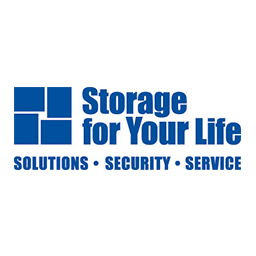Fredericton, NB – At today’s Canadian Chamber of Commerce annual convention and federal government policy debates, in Fredericton, New Brunswick, the Surrey Board of Trade asked the 450 chambers/boards of trades in Canada to support a federal government ask to support Bill S-229: Underground Infrastructure Safety Enhancement Act.
“Over the years, pipelines and other underground utilities have been built throughout the country on public and private land. Unfortunately, there is no one over-arching database or geo-located comprehensive inventory that has tracked the location of these pipes — both actively used and long abandoned. Senator Grant Mitchell has put forward a bill to require registration of underground infrastructure on federal grounds, to assist in building that necessary inventory for the safety of future users and developers who may need to dig in such areas,” said Anita Huberman, CEO, Surrey Board of Trade.
The purpose of the bill is to require owners and/or operators of underground infrastructure (pipes carrying a range of materials, cables, ducts, services, etc.) that is federally regulated or located on federal land to register the location of same with a notification system, such as the One Call program that exists in BC. Currently, registration of underground infrastructure is predominantly voluntary. There are over $30 Billion of pipelines in the Lower Mainland carrying oil, water, sewage and more with no common map of all the pipes. Metro’s Greater Vancouver Water District (GVWD) and the Greater Vancouver Sewerage and Drainage District (GVS&DD) are good resources for One Call as is FortisBC. However, not all owner/operators have registered their infrastructure and accidents happen, as in 2007 Burnaby/Chevron pipeline incident.
The bill proposes:
1. Owner/operators register all underground infrastructure, even historically unused systems
2. Require those undertaking work resulting in ground disturbance on federal land or in the vicinity of federally regulated underground infrastructure to first place a locate request with a notification system
3. The notification centre would be required to inform registered owners / operators of the underground infrastructure in the vicinity of the excavation of the proposed ground disturbance o
4. In response, Owners/operators would be required to respond to the notification by either:
a) Marking on the ground the location of the underground infrastructure
b) Providing an accurate and clear description of the location of the underground infrastructure in relation to the proposed ground disturbance; or
c) Providing an “all clear”; meaning the proposed ground disturbance activity is safe to proceed without any of the above.
Further, the bill proposes:
The notification centre be a non-profit corporation that would be a single point of contact for registration, requests and notifications;
The Minister may appoint a “Damage Prevention Organization” within individual provinces to be the notification centre for that province under the proposed act;
Ministry pay each provincial government specified amounts for the contracting of a non-profit organization to be the notification centre for that province Subsequent sections of the bill detail the contract and the roles of various government agencies (federal and provincial), plus the amendments to the various Acts for alignment purposes.
The bill would:
Enforce registration of all infrastructure on federal property, with incentives for private owners (large) to register as well;
Provide incentives for provincial governments to support a non-profit notification corporation to be that conduit of information (e.g., BC One Call Corporation);
Foster collaboration across industry and various government agencies to ensure infrastructure is registered and notification is responsive; and
Provide a comprehensive inventory and geo-location of infrastructure both current and historic. With the concerns raised of cross-Canada pipelines, this would help assuage fears of inadvertent leaks due to not knowing where utilities are under ground. Further, by creating non-profit entities that will be self-funding, this alleviates the burden.
Senator Grant Mitchell introduced Bill S-229, the Underground Infrastructure Safety Enhancement Act on September 29, 2016. After being studied by the Senate Energy, the Environment and Natural Resources Committee, the bill had Third Reading in the Senate on May 2, 2017. The bill has now moved to the House of Commons. Lloyd Longfield, Member of Parliament (Guelph) is now the sponsor of the bill in the House.
-30-









